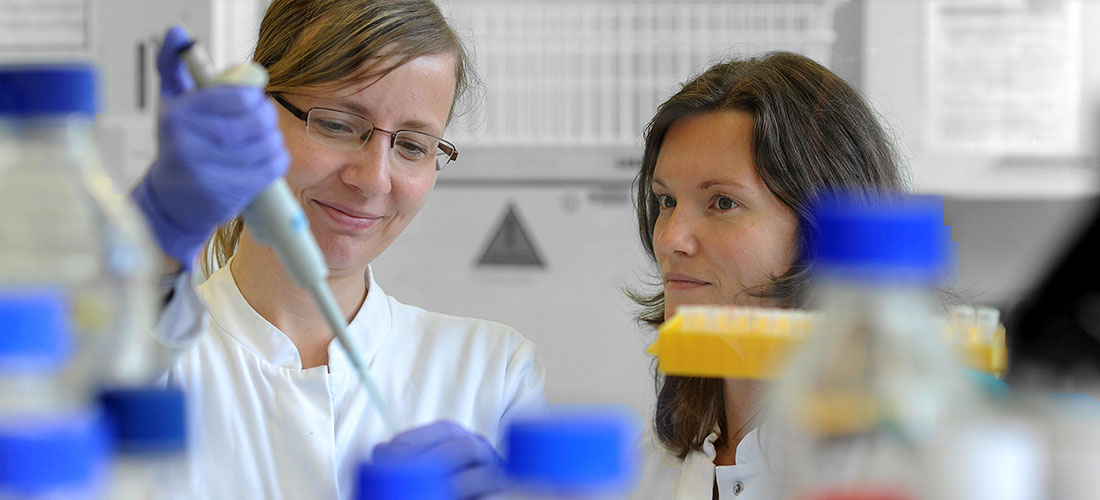CRC1588

CRC1588 Summary
The devastating childhood tumor, neuroblastoma, represents a great challenge for the pediatric oncologist. Poor survival is mainly due to relapse resulting from therapy resistance and early metastasis. Recent studies indicate that these major features of treatment failure are driven by the complex process of tumor evolution, which has up to now been studied mainly by genetic approaches. Newest molecular mechanistic insights into neuroblastoma treatment failure obtained by CRC1588 partners and others have challenged this one-dimensional view of sequential genetic evolution as the paramount cause of relapse and proposed a range of additional non-genetic and adaptive phenotype mechanisms for therapy evasion. With this new view, neuroblastoma research is not only challenging several classical cancer concepts, but offers a unique and timely opportunity to study and target evolution in a tumor model that demonstrates intriguing biological features with important implications for future therapy selection, monitoring and clinical trial design.
The overarching 12-year goal driving this highly cross-disciplinary CRC is to deliver novel, improved individualized treatment strategies based on a mechanistic understanding of neuroblastoma evolution. We postulate that intense interplay occurs in neuroblastoma evolution between (i) genetic and non-genetic evolutionary mechanisms and (ii) genomic and phenotypic intratumor heterogeneity. The central idea in the proposed CRC1588 is that this interplay drives neuroblastoma cells to evade therapy. An integrated research approach is required to decode (primarily in the first and second funding periods) and therapeutically target (mainly in the third funding period) these complex processes. Innovative technologies allow the study of tumor evolution at previously unprecedented single-cell resolution, which is most promising to generate new clinically relevant insights. CRC1588 aims to take a leading role in the emerging field of neuroblastoma evolution by (i) comprehensively characterizing, functionally evaluating and understanding its tumor intrinsic mechanisms (Research Area A); (ii) dissecting/targeting signaling driven by MYCN and ALK oncogenes, which strongly contribute to mechanisms of neuroblastoma development and evolution (Research Area B) and (iii) illuminating how tumor cell interactions with their micro- and macroenvironments contribute to evolution (Research Area C). We will use modern data science approaches to conduct cross-platform analysis of molecular patient datasets and cross-species analyses from human, mouse, zebrafish and chicken embryo data. Uniquely, CRC1588 will have direct access to the national neuroblastoma clinical trial and national biobank, enabling immediate transfer of new molecular knowledge into academic clinical trials.
CRC1588 will constitute a long-term research area perfectly fitting into the supportive Charité and Berlin research environments, which are focused on efficient translation of systems medicine approaches in diseases with a high medical need. CRC1588 implementation will offer subsequent benefits for recruitment of international talent and novel interdisciplinary training formats in the highly specialized research field of pediatric cancer. The comprehensive CRC1588 program will be rounded off by innovative activities in science communication with patients/parents, key stakeholders in the health care system and the public.



